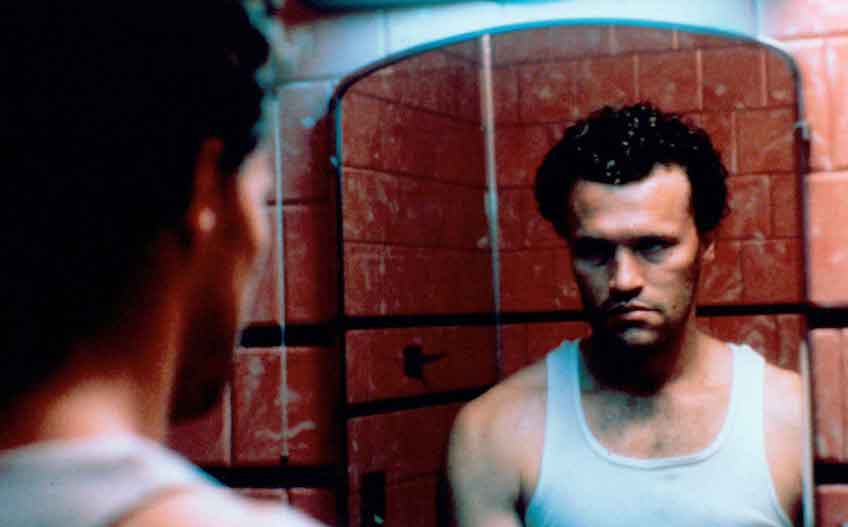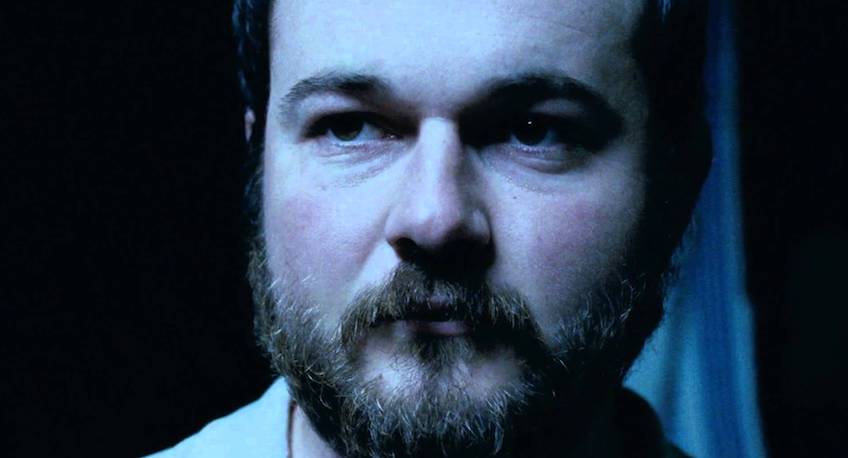Interested in writing for our blog? Send your pitches to editor@miff.com.au.
Fitting In is Tough: The Trials of a Teenage Dahmer

by Kai Perrignon
Jeffrey Dahmer killed 17 people. He tried to brainwash them, tortured them, raped them, and dismembered their bodies. He is one of the most infamous serial killers who ever lived, a true bogeyman of history.
So it might seem slightly tasteless to explore Dahmer’s high school years, as director Marc Meyers does in his new film My Friend Dahmer, based on the autobiographical graphic novel by John Backderf. But Meyers’ film, a powerful, illuminating piece of exploitation cinema, is much subtler and more nuanced than its juicy premise would suggest. Though there are the obligatory moments of will-he-kill-somebody suspense, most of the film is a melancholic tragedy, a warped coming of age story about a young man with issues that no one was willing or able to address.
My Friend Dahmer is another example of the booming true crime genre, an industry that permeates both the dark corners of the web and mainstream pop-culture.
The young Jeffrey of this picture is a loner trying to fit in. The closest he gets to doing so is when he begins faking cerebral palsy and seizures to the delight of some local pranksters (including the young Backderf), who see Dahmer’s outbursts as some kind of outsider performance art. Dahmer knows these kids are making fun of him, but he likes being around people and accepts their embrace, however patronising. But Dahmer’s self-awareness slowly seems to dissolve as his home life takes a nosedive and his sexual repression becomes more acute, with Meyers offering the disquieting proposition that Dahmer was, in his own way, a victim himself.
My Friend Dahmer is another example of the booming true crime genre, an industry that permeates both the dark corners of the web and mainstream pop-culture. Cinema’s exploitation of horrific events arguably began with Fritz Lang’s seminal 1931 M, which drew on the story of the so-called “Vampire of Dusseldorf”, and reached its horrific peak with John McNaughton’s 1986 film Henry: Portrait of a Serial Killer, based on the real-life Henry Lee Lucas.

Michael Rooker in Henry: Portrait of a Serial Killer (John McNaughton, 1986)
Make no mistake, these films – especially the ones that tout their ‘based on’ credentials – are prime examples of exploitation. No matter how sophisticated they may be, each is using real life tragedies as jumping-off points for entertainment. Henry Lee Lucas murdered real people with real families. And McNaughton, however indirectly, made money off those killings.
But I’m not here to morally discredit exploitation films. I love exploitation films. I think they’re often vital, the closest cinema can really come to tapping into the bleeding edge of the public consciousness. Audiences eat this stuff up, and untangling why can be a fruitful exercise.
One of the rules that any genre enthusiast knows is that the scariest thing in the world is the unknown. The darkness in the forest is much more frightening than whatever monster an effects whiz can cook up
First of all, serial killers are fucking scary. Dennis Rader used to hide in people’s closets and watch them while they slept, which makes him the personification of my childhood’s biggest fears – and he isn’t even close to one of the worst ones. Though My Friend Dahmer never shows its protagonist committing any crimes, the shadow of his future looms over every frame, giving his thousand-yard stare an extra kick of terror – especially for audience members familiar with his crimes.
One of the rules that any genre enthusiast knows is that the scariest thing in the world is the unknown. The darkness in the forest is much more frightening than whatever monster an effects whiz can cook up. In John Carpenter’s original Halloween (1978), Michael Myers is a force of pure terror because of his blankness, his lack of rationality. Rob Zombie’s reboots, whatever their grimy pleasures may be, lack the power to truly terrify because they explain Myers’ behaviour with simplistic pop psychology. The more an evil is explained, the less frightening it is.

Daniel Henshall in Snowtown (Justin Kurzel, 2011)
Except, that is, when it comes to serial killer stories. They get to have it both ways. Justin Kurzel’s Snowtown (2011) follows John Bunting’s (played by Daniel Henshall) small-town killing spree with terrifying specificity, using a patient approach that makes the murders feel chillingly mundane. My Friend Dahmer turns the young man into a real personality, one whose eventual aggression may have been cultivated by early trauma: his repressed sexuality, which he tries and fails to express during an uncomfortable exam from an attractive doctor; his isolation, which his ‘hilarious’ fake seizures can never quite overcome; and the remoteness of his parents, his father physically absent and his mother (a loopy, tragic Anne Heche) mentally so.
And yet neither of these films – almost none in this genre, full stop – come close to truly explaining these killings. There’s something so specifically alien about someone who can kill again and again, with little to no remorse, finding sexual or spiritual gratification in violent acts. No matter how much Dahmer (or Lucas, or Gein) are humanised, their crimes remain incomprehensible.
My Friend Dahmer and other films of its ilk attempt to give us this power, this ability to rationalise horrors, but they never quite get there.
Henry Zebrowski, one of the hosts of true-crime show The Last Podcast on the Left, was recently asked about our fascination with the macabre. “When I was a kid,” he said, “I was told that if something makes you scared, learn as much as possible about it, and that’s how you gain power over it.”
My Friend Dahmer and other films of its ilk attempt to give us this power, this ability to rationalise horrors, but they never quite get there. No matter how detailed and specific they may be, they are limited by our inability to fully understand the compulsions of their protagonists. For me that limitedness is ultimately more honest than whatever easy psychology a screenwriter can cook up.
My Friend Dahmer opens at a time in a place.
My Friend Dahmer plays on 12 and 18 August.